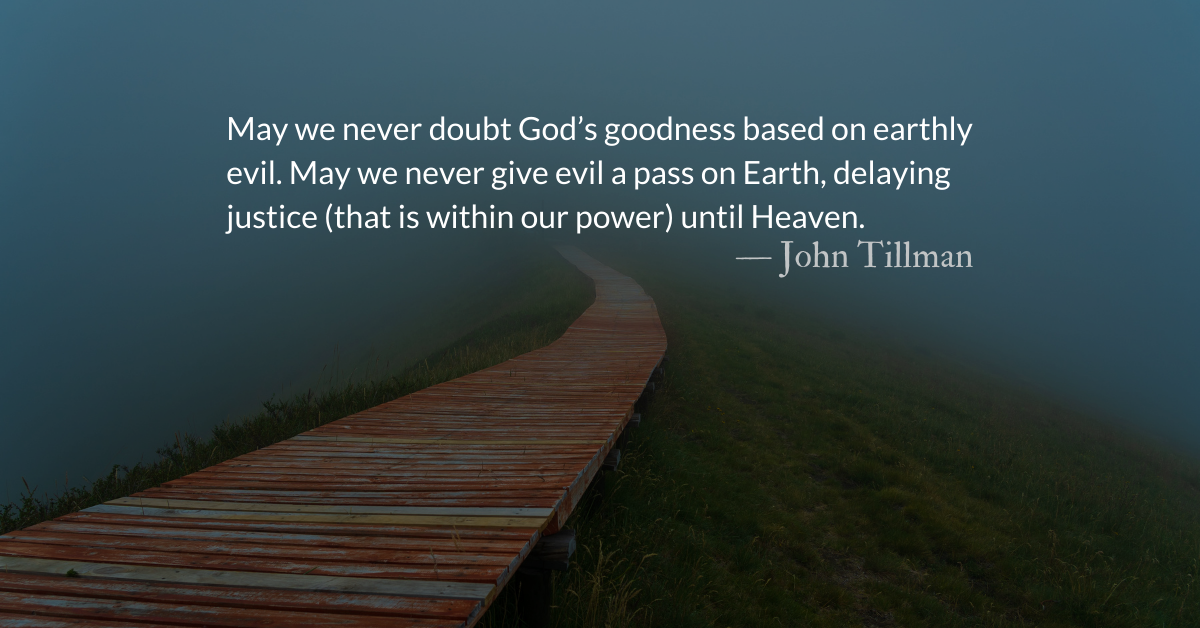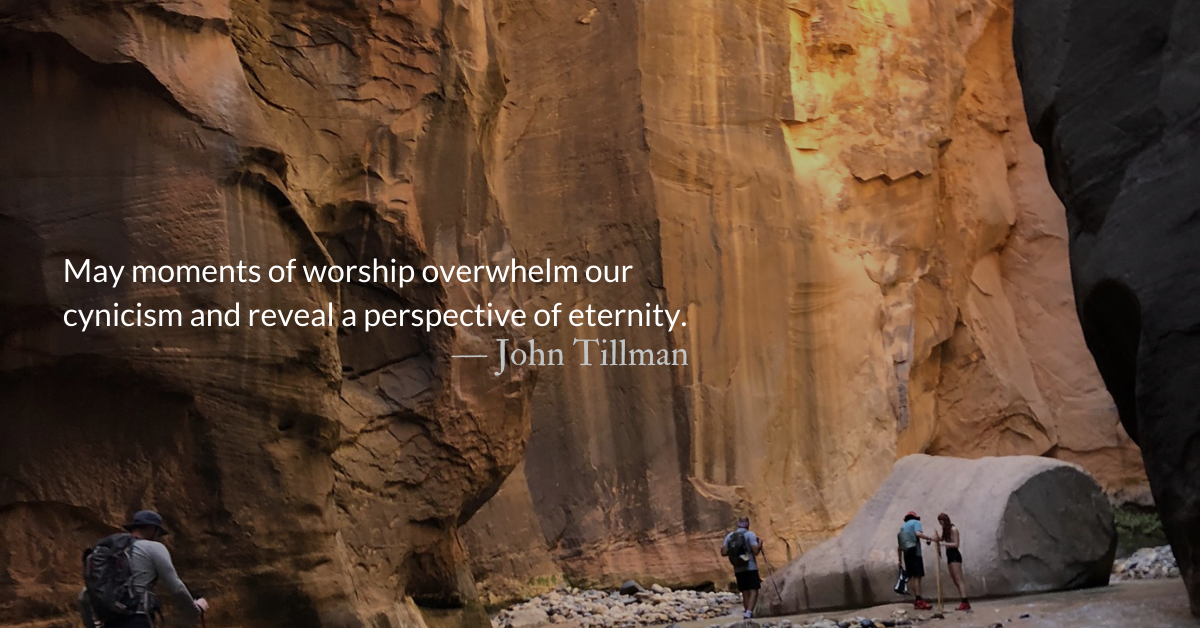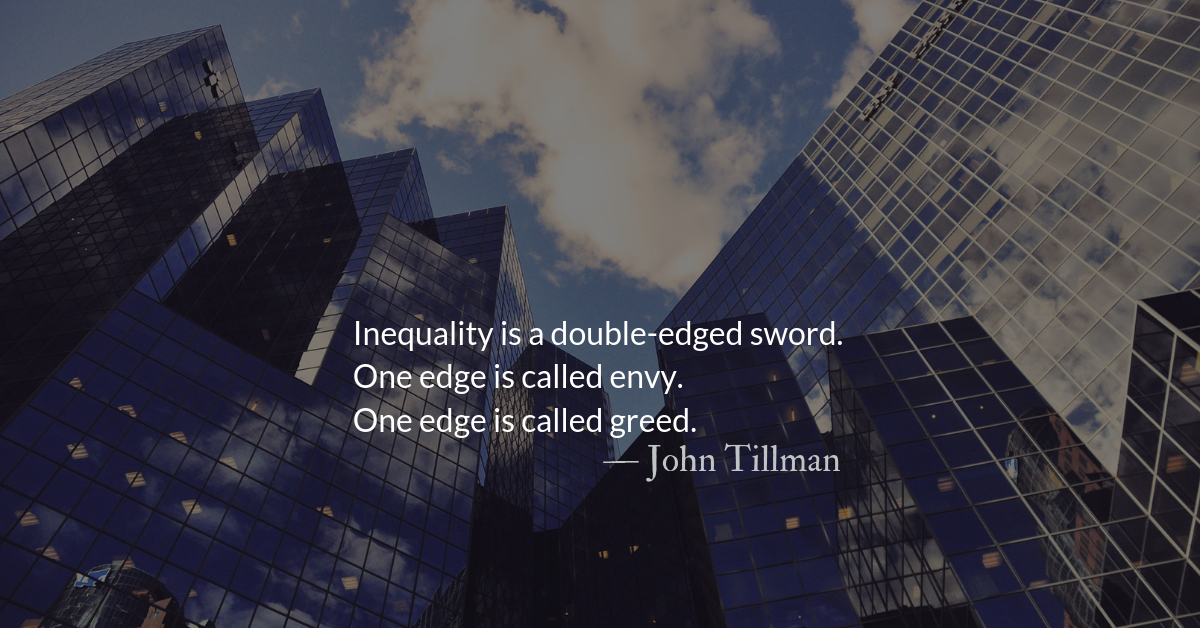Scripture Focus: Psalm 73.1-3
1 Surely God is good to Israel,
to those who are pure in heart.
2 But as for me, my feet had almost slipped;
I had nearly lost my foothold.
3 For I envied the arrogant
when I saw the prosperity of the wicked.
From John: Rewriting this entry from 2019 reminds me that we often struggle to stay above the fray when we see the arrogant and wicked succeed. May we concern ourselves more with our own steps than theirs.
When men doubt the righteousness of God, their own integrity begins to waver. — Charles Haddon Spurgeon
Reflection: Inequality Wounds With Greed and Envy
By John Tillman
The psalmist is thrown into doubt and pushed to the limits of his understanding by the inequality he sees in the world.
Inequality is a double-edged sword.
One edge is called envy. It is dulled from overuse and makes up for being unsharpened with a harsh, serrated edge. It saws at its victims rather than slices them.
One edge is called greed. It is sharp and quick, and drips with an anesthetizing coating. It slices to the bone, yet victims hardly feel pain. Most don’t realize they have been wounded or don’t realize its severity.
The psalmist is cut by the edge of envy and the wound grieves him. How can God be just if wicked people are so prosperous? How can God be caring if those he loves suffer? But as he pursues God in worship, he comes to understand the other side of the sword.There are wounds here for all of us.
The wound the psalmist addresses is mistaking stored up justice for absence of justice. The wealthy who ignore the poor are not escaping justice and we are not responsible or qualified to carry out justice. We are not to eat the rich, but the bread of life.
Our wound if we are wealthy, is to think that we are not that wealthy, or that the poor are not that worthy of help. After all, those richer than we are should do the heavy lifting of caring for the poor, shouldn’t they? After all, poor is a synonym for lazy. We call ourselves prudent, not greedy—responsible, not cruel. We forget that we were poor and undeserving when Christ gave all he had to cancel our debt of sin.
At times, suffering psalms, like this one, have been misused to shush protesters. “Don’t be so angry. Just preach the gospel and rely on God.” This pie-in-the-sky kind of cold comfort ignores one of the frequent commands of scripture—that the powerful are held responsible by God for the wellbeing of the weak.
May we humbly seek the conviction of the Holy Spirit. It is in Christ that we will find the compassion to overcome our cynicism and the generosity of spirit to overcome our jealousy and greed. May we never doubt God’s goodness based on earthly evil. May we never give evil a pass on Earth, delaying justice (that is within our power) until Heaven.
Divine Hours Prayer: The Refrain for the Morning Lessons
Blessed are they who do hunger and thirst after righteousness: for they shall be filled.— Matthew 5.6
– Divine Hours prayers from The Divine Hours: Prayers for Springtime by Phyllis Tickle
Today’s Readings
Numbers 29 (Listen – 5:05)
Psalm 73 (Listen – 2:56)
Read more about Incest, Greed, and Idolatry
Paul would have us as uncomfortable with greed and idolatry as we are with incest and other sexual sins. But are we?
Read more about God Shivering on Concrete
Our God humbles nations addicted to greed—including His own.









